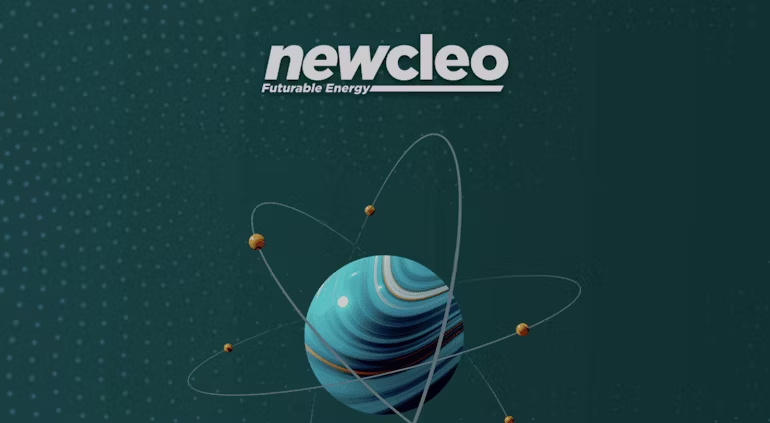The Exploration Company
- Shaurya Garg

- Jul 8, 2025
- 4 min read
In a space sector dominated by large American and Chinese companies, The Exploration Company (TEC) has started to emerge as the most serious contender in Europe. Established in 2021 by aerospace executive Hélène Huby, TEC is trying to revolutionize transport in orbit and on the moon with Nyx, an every-man's modular, reusable, and sustainable spacecraft. Whether cargo transportation to the International Space Station (ISS) or simply making it in lunar orbit, the firm is thus on track to creating a sovereign European alternative to existing players in the space logistics category.
During the time since establishment, TEC has raised around $210 million (~€193 million). This total includes a seed round of nearly $6 million in 2021 anchored by Promus Ventures, and Vsquared Ventures, a Series A round of €40.5 million in February 2023 from EQT Ventures, Cherry Ventures, Omnes, and Red River West, and a historic series B round of €150 million in November 2024 led by Balderton Capital and Plural, alongside Bessemer Venture Partners, NGP Capital, French Tech Souveraineté, DeepTech & Climate Fonds, and Bayern Kapital. This recent round was the largest series B of any European space startup, and consequently, TEC is now valued in the range of $525-600 million.

As of mid-2025, The Exploration Company is not profitable as it is focused on R&D, spacecraft testing and preparing for commercial job. However, it has already won early-stage contracts such as the € 25 million from the European Space Agency (ESA) cargo delivery program. With several contracts in place and missions already in progress, It is anticipated that TEC will capture its first revenues in 2027 and will see a positive cash flow around 2029.
The centrepiece of the company’s capability is Nyx, a modular and reusable spacecraft capable of performing missions to Low Earth Orbit (LEO), lunar (Cislunar) orbit and hopefully to the surface of the Moon. Nyx can carry around four tonnes of cargo, uses green propellants (bio-methane and oxygen) and can be used for a maximum of five missions. Its open-source hardware and software interfaces enable third parties and users to plug in their own systems with ease. Demonstration missions such as Bikini, scheduled for July 2024 on-board Ariane 6; and Mission Possible, which flew June 2025 on a SpaceX Falcon 9, assisted TEC in testing out significant subsystems. Although Mission Possible suffered a parachute failure and the capsule crashed into the Pacific, it was still a major advancement in the development of the system.
TEC has expanded rapidly and now has over 200 staff as of 2025. They have a multinational presence with headquarters in Munich, Germany, and Bordeaux, France; Austrians in Turin; Houston, USA; and MENA locations. The employees consist of former engineers from ESA, CNES, Airbus, and ArianeGroup showing the company's ambition to build a European powerhouse in space.
The company has also landed several high-profile contracts and partnerships. They have a €25 million contract with ESA to become a service supplier under the agency’s commercial cargo program. They are also the first European company to sign a Space Act Agreement with NASA and they currently have ongoing discussions, partnerships and collaborations with Axiom Space, Vast, DLR, and others in the space eco-system. TEC also received support from national programs such as France 2030 (innovation), and Bpifrance funding.
The Exploration Company utilizes an efficiency, reuse, and accessibility-based pricing and revenue system. While building the Nyx vehicle for reusability five times and using average costing green propellants,_CRURL7 is 30-50% cheaper to perform orbital missions than competitor launch providers such as SpaceX. The versatility and adaptability of the Cargo-as-a-Service (CaaS) model allows end-users to deploy payloads for space transport to be flexible, thereby enabling space transport to be affordable by research and academic institutions, governments, and commercial organizations or explorers. Additionally, TEC will provide future revenues based on in-orbit refueling services, open-source modular component licensing through its SpaceStore platform, and data services from hosted scientific and commercial payloads. The firm’s diversified revenue model presents opportunity for strong margins and broad income streams as full operations begin.
While TEC starts in a very competitive segment of space transport, with direct competitors for its Nyx vehicle including SpaceX’s Dragon capsule, Sierra Space’s Dream Chaser, ISRO’s Gaganyaan human-spaceflight project recently introduced to its portfolio, and Axiom Space’s orbital logistics services; The company has a unique positioning based on reusability, open-source architecture, in-orbit refuelling service, and green propulsion for the Nyx. No European company offers a similar capability currently, thereby affording TEC distinct first mover advantage on the continent.
The Exploration Company is more than a startup; it’s the declaration of independence for Europe in the space economy. The company has a grassroots, growing staff, and sophisticated global development, funding sources, and ambition for technology development. TEC is not just preparing to compete with other companies on the global stage; it is building the structure for a European long-term presence in space. It currently is not a profitable entity, but has clear movement in an upward direction and is a potential historical impact in the space industry.
Click here to access TEC's website.









Comments